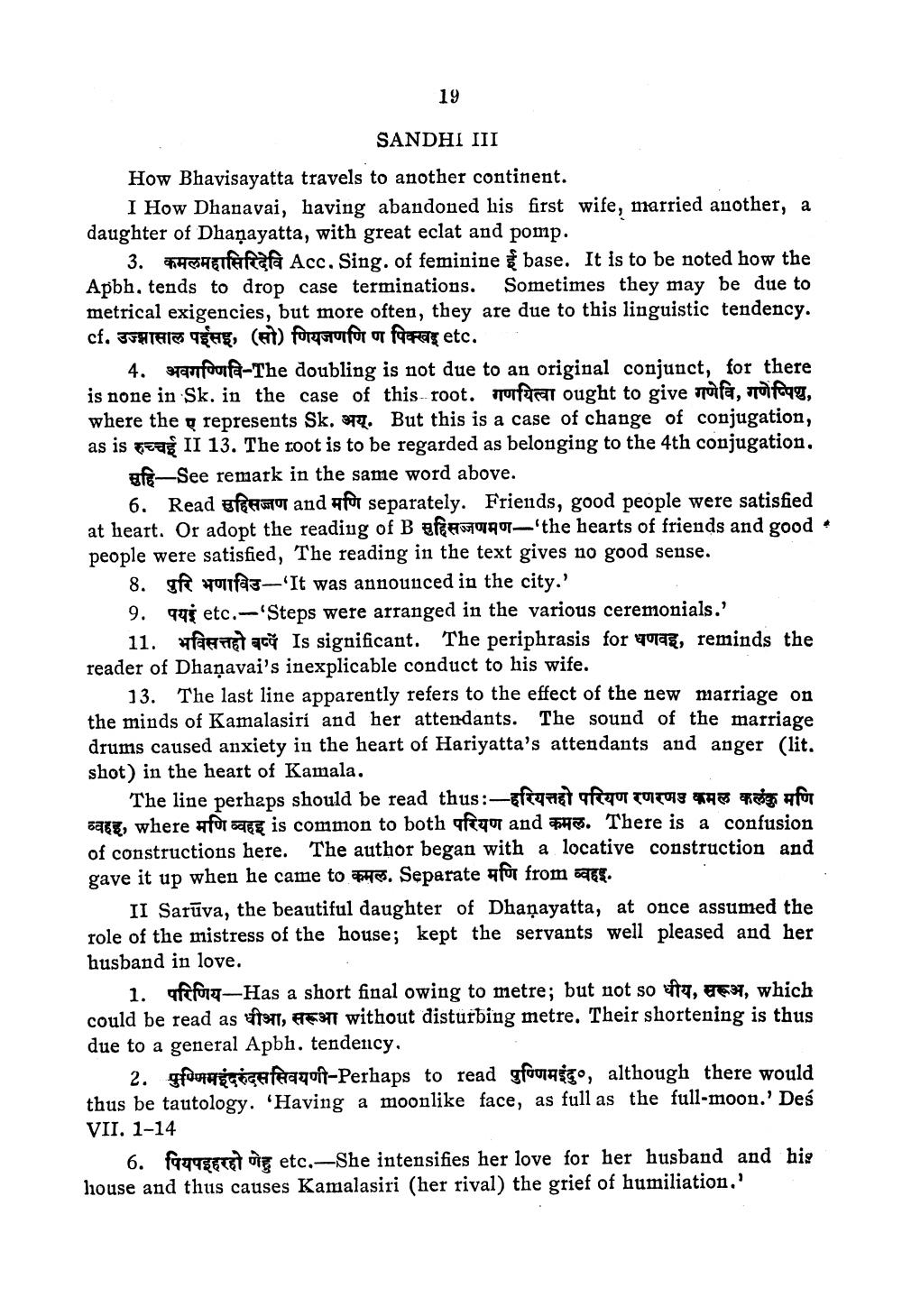________________
19
SANDHI III How Bhayisayatta travels to another continent.
I How Dhanavai, having abandoned his first wife, married another, a daughter of Dhaņayatta, with great eclat and pomp.
3. 44 H aftafa Acc. Sing. of feminine base. It is to be noted how the Apbh, tends to drop case terminations. Sometimes they may be due to metrical exigencies, but more often, they are due to this linguistic tendency. cf. JFHEIT TEHE, (EN) forest for og faras etc.
4. Stanforfà-The doubling is not due to an original conjunct, for there is none in Sk. in the case of this- root. गणयित्वा ought to give गणेवि, गणेप्पिशु, where the represents Sk. 377. But this is a case of change of conjugation, as is reag II 13. The root is to be regarded as belonging to the 4th conjugation.
fe-See remark in the same word above.
6. Read a fhm and for separately. Friends, good people were satisfied at heart. Or adopt the reading of B afAWAT—'the hearts of friends and good people were satisfied, The reading in the text gives no good sense.
8. gf fag-'It was announced in the city.' 9. 995 etc.-'Steps were arranged in the various ceremonials.'
11. annet at Is significant. The periphrasis for 198, reminds the reader of Dhaņavai's inexplicable conduct to his wife.
13. The last line apparently refers to the effect of the new marriage on the minds of Kamalasiri and her attendants. The sound of the marriage drums caused anxiety in the heart of Hariyatta's attendants and anger (lit, shot) in the heart of Kamala.
The line perhaps should be read thus:-हरियत्तहो परियण रणरणउ कमल कलंक मणि व्वहह, where मणि व्वहइ is common to both परियण and कमल. There is a confusion of constructions here. The author began with a locative construction and gave it up when he came to कमल. Separate मणि from व्वहइ.
II Sarūva, the beautiful daughter of Dhaņayatta, at once assumed the role of the mistress of the house; kept the servants well pleased and her husband in love.
1. affuz-Has a short final owing to metre; but not so ofte, 7634, which could be read as 1971, E3 without disturbing metre. Their shortening is thus due to a general Apbh. tendency,
2. पण्मिमइंदरुंदससिवयणी-Perhaps to read पुण्णिमइंद०, although there would thus be tautology. 'Having a moonlike face, as full as the full-moon.' Des VII. 1-14
6. ATTEETET OE etc.—She intensifies her love for her husband and his house and thus causes Kamalasiri (her rival) the grief of humiliation,'




